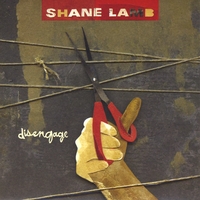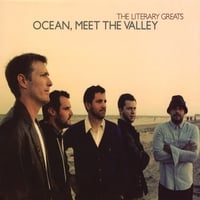It helps, I think, if I give some background to what has happened. As I've argued previously, all societies have a culture of relationships and this culture will be influenced by marriage, by romantic love and by sex. In earlier societies, the balance was tilted toward marriage. Then from the 1800s, romantic love played a larger role. Since the 1960s, there has been a shift toward sex.
Second-wave feminism played a role in this last shift. In the 1970s feminists demanded the sexual liberation of women, which really meant the pursuit of relationships by women for sex alone, without regard to marriage or romantic love.
Sex liberation feminists were therefore committed to two things. First, they had to reject the predominant emphasis on romantic love. Men who grow up in a culture of romantic love will tend to idealise women and be focused on feminine beauty and goodness. Therefore, feminists who wish to show that they are liberated from romantic love will present a markedly non-idealised version of themselves: they will act coarsely, without the feminine graces.
Second, sex liberation feminists will want to break any limits on how they can act sexually. It will be important to them that they can have sex however they choose without consequences. So they won't think of some sexual situations as being dangerous or risky, but will consider it entirely the fault of men if these sexual encounters turn out badly (leading at times to an obsession with the issue of date rape). Or they might wish to pursue sex work, without recognising the psychological fallout this is likely to bring on. Or they might treat abortion as a positive sign of commitment to a liberationist politics. Or they might act loudly and deliberately (i.e. in an exaggerated way) against the instinct to sexual modesty.
When I reached my late teens (in the early 1980s), romantic love still played a major role in the culture of relationships. So the teenage schoolgirls I went out with still tried to live up to an ideal of feminine beauty and goodness. But by the time I went back to uni in my mid-20s, things had changed. It was the high point of third-wave feminism. A culture of feminist sexual liberation had set in on campus.
The expectations of young men and women at this time were set a long way apart. I'm guessing that a lot of men were, like me, confused by what was happening. Uni women dressed in a plain, mannish way, cut their hair short and wore no jewellery or make up. They had started to drink heavily and to swear in public. I remember women coming into tutorials and describing loudly how they had gotten drunk and picked up men the night before.
These women thought, perhaps, that all that was required to attract men was to unbutton a top at the appropriate moment - and I suppose that if relationships only exist for the purposes of sex that there is a certain logic to this. But I found the women too unappealing to pursue.
What then happened? Over time, the expectations of men and women were realigned. Romantic love was no longer such a part of public culture. Men began to be oriented more to the ideal of sex liberation and so valued women more for hotness than for beauty and goodness. The focus on hotness began to influence the way women presented themselves to men (it influenced the culture generally - consider some of the more controversial changes to the fashion of young girls).
All of which enraged the more radical feminists. They wanted women to set the terms of engagement between the sexes. They certainly didn't expect, as an unintended but logical outcome of their own sexual revolution, that women would be valued in terms of their hotness (that women would be "sexually objectified").
Feminists are now in a predicament. They don't like a culture of male sexual liberation. But they are still wedded to a culture of female sexual liberation and therefore stridently reject the alternatives. As an example of this predicament, consider the story told by Hannah M. about her conversion to feminism. She was upset by the raunch culture she experienced when she went to university:
I don't think it hit me entirely until I'd spent a few weekends visiting my boyfriend, then a fresher at a different university. He was also in halls and lived on a corridor with a big group of guys who were mostly single. Many of them made it quite clear that they considered me a hindrance to his university experience, to the extent that they encouraged him to get rid of me so he too could play the field at the union every Friday night. To top it off they were big fans of porn and lads' mags.
But at the very same time that she objects to a culture of male sexual liberation, she also makes it clear that she thinks women should behave sexually as they want without consequences:
I despised how this culture made me feel as a woman. I knew I was worth much more than how many boxes I ticked on the list of 'conventionally attractive attributes' and how many men wanted to have sex with me. It depressed me that so many people, male and female, were clamouring to be a part of a culture that encourages women to do all they can in a neverending quest to appeal to men yet berates them for what they wear, how much they drink and how they behave if they become the victim of sexual assault or rape.
A more extreme example is that of Penny Red. She wrote an article recently which seems a bit crazy on the surface. Nonetheless, it follows the themes you might expect from a modern sex liberationist feminist. The idea that women should be able to act freely sexually without consequences is represented by Penny Red's immodest talk about sexual relief, by her complaints that women who sleep around are considered slutty, by her admission of having worked as a stripper and so on. At the same time, she is enraged by the ideal of sexiness in society:
I am personally, right here and now, sick of being objectified by this culture, sick of denying my selfhood and performing for others and apologising for my wants and needs and desires ... As a woman in my 20s I am told that I should constantly aspire to look sexy - but I shouldn't sleep with too many people, I shouldn't sleep with anyone on the first date, I shouldn't appear too keen, I shouldn't be 'slutty'. I am an object; I should aspire to be the best possible object I can be.
THAT is what objectification means. It's a denial of selfhood and sexuality and identity ...
Well, I'm sick of being an object. I'm sick of apologising for my 'frigidity', for my feminism, for my rage at not being allowed to express myself sexually and yet being expected to perform and bullied if I object to men, strangers or otherwise, treating me like chattel. There's something thundering inside me about to be unleashed, hemmed in by anger and the bawling of stupid, ignorant misogynists. I feel like my anger could howl away inside me and consume me if I don't let it out. I want to scream. I want to hit things. I want to climb on some high roof and yell that I'm a person, that all women are real people who deserve to be treated like human beings, until they come and drag me off for being 'hysterical'.
I wish she would understand that she wants contradictory things. She wants a culture in which relationships are pursued for sex, without regard for love or marriage, but in which the appeal of women is not based on their sexiness.
I think she's going to be left howling at the moon.









